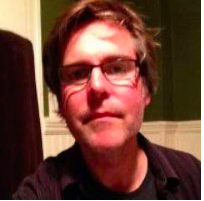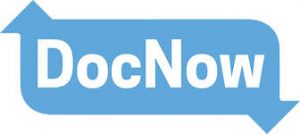
by Victoria Jackson
In a world full of constant content generation, how can library and information science professionals convince their communities, their institutions, and the world at large of their importance? It is a question of growing importance within the field, given the number of technological advancements made seemingly every month. Enter Ed Summers, Lead Developer at the Maryland Institute for Technology in the Humanities (MITH), who has found ways to incorporate user-driven, community-based archival projects throughout his career.
Three years ago, Ed left his position working with digital preservation at the Library of Congress. There, his job included finding ways to preserve digital content. In his current role at the MITH department, he is focused on providing content creators and users with methods of communication. Ed works with both other software developers and researchers, and while his job title is “lead developer,” he does not consider his work as solely technical. When the current director (who is relatively new in his role) came in, he asked if they wanted to change their titles to “better reflect what they do.” Naturally, Ed pondered what he would change his to. He found a title on Wikipedia from nineteenth-century scientists who called themselves “curators of experiments.” Ed is unofficially one of them.
For the last two years, Ed’s main experiment has been Documenting the Now, a “tool and a community based around supporting the ethical collection, use, and preservation of social media content.” Ed serves as the Technical Lead for the project, alongside a host of other archivists from the University of Maryland, the University of California at Riverside, and Washington University in St. Louis. Designed to “explore building tools and community of practice around social media archiving—specifically oriented around the ethics of social media archiving,” DocNow was inspired by the reaction to the 2014 shooting of Michael Brown in Ferguson, Missouri. At the time, Ed was attending a Society of American Archivists meeting during the height of the Ferguson protests. He and fellow archivist Bergis Jules wondered what people would remember about this event in the future. They collected 13 million tweets in the weeks surrounding Brown’s death, started writing about the data collection and analyzation; archival and public interest ensued. For Ed, it was important the project have a home that was physically close to its origin. The project came to reside at St. Louis University.

DocNow aims to provide practitioners who wanted to preserve these moments with an opportunity to do so. The project had two initial deliverables: a white paper about the ethics issues and a digital tool that would allow people to collect twitter posts. However, while working on the project, questions regarding data sharing and consent arose. The project shifted gears: the new objective became to build a tool that “connected curators and archivists with content creators” and “bring the two into a more meaningful communication.” DocNow puts the focus on content creators and the relationship they have with each other.
As you can imagine, receiving a grant from the Mellon Foundation went a long way to advocate for the importance of the work Ed and his colleagues do. In between such prestigious projects, MITH participates in nontraditional advocacy programs, such as a series of digital dialogues in which the school invites researchers from outside its own community to discuss their work. This interdisciplinary relationship is what drives Ed’s work. Ed believes his most important constituents are the university’s students, faculty, and community—in that order. Working in a university can sometimes involve what he refers to as the “town-gown” divide; ordinary community members and members of the university’s community. His goal—which should be the goal of all archivists—is to bridge the gap between the two. Ed sets an excellent precedent for how to accomplish this goal.
